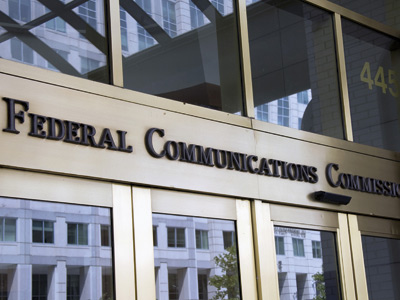But Will the Overwhelming Title II Rhetoric Change Anyone's Mind (or Vote)?

The smarter way to stay on top of the multichannel video marketplace. Sign up below.
You are now subscribed
Your newsletter sign-up was successful
Just in time for the Spring Bloviating Season, the FCC hath wrought a fomenting cauldron from which will spew immeasurable volumes of verbosity, accompanied by dizzying infographics and data points, most of which will include more non sequiturs and mixed metaphors than this sentence. And will the forthcoming sturm und drang ultimately change anyone's opinions or policies?
Unlikely.
Clearly lawyers, lobbyists and policy analysts are salivating over the billable hours ahead, developing new ways to say and show that the FCC's Title II proposals are (1) vital to our national well being, (2) the doom of our future freedoms, (3) too important to trust to five political appointees, (4) unforbearancely expensive or (5) something else they contrive as relevant to this "conversation."
Speeches will be made, comments and reply comments will be submitted, conference panels will be devoted to the Open Internet. And confusion and angst will continue to reign.
But will anyone's mind be changed?
Or does it all come down to, for now, the vote of one FCC Democratic commissioner who may not agree with her Chairman? And what parts of this matters? As Chairman Wheeler has telegraphed, the upcoming FCC deliberations on Title II are being structured as a prelude to the inevitable Congressional and court challenges ahead.
OK, democracy can be an ugly, ungainly process, especially when volatile topics such as free speech and billions of dollars are at stake. And there's always the hope that the upcoming process will birth some useful compromise that keep all parties satisfied - or at least, comparably unhappy.
The smarter way to stay on top of the multichannel video marketplace. Sign up below.
As if.
The history of such dramatic telecom policy scuffles on the public stage does not bode well. Memories turn to 2002's "Internet Freedom and Broadband Deployment Act (H.R. 1542)," better known as the Tauzin-Dingell Bill in honor of its bipartisan (sort of) sponsors.
We also recall Senate Commerce Committee Chairman Fritz Hollings' denunciation of the House proposal and his preference for his own "Broadband Telecommunications Act" (which had a different cast of political backers). The promotional campaigns filled
Washington's airwaves with incessant advocacy ads that totally confused almost all listeners, even the targeted congressional staffs. And ultimately, Congress let the whole thing die.
Although advocacy campaigns (such as the NCTA-backed Broadband for America) are already underway, we can only hope that public display of animosity does reach the levels of that decade-ago deluge. Or maybe it's more fitting than ever in today's ecosystem for an arcane industry dispute to be the cause du jour - until something more visible (and understandable) comes along.
In parts of our community, the leisure of the theory class is to write and refute sage reports about social and economic impact of policy decision. I eagerly await the hired economists' next round of authoritative interpolations of data, proving the disastrous impact of the "wrong" policy decision. We can write the scripts today and let them fill in the numbers later.
None of this skepticism suggests that the deliberative process is unworthy. But in this particular case, the long, long debate seems particularly odious. And in today's political climate, the likelihood of turning votes - or even redirecting anyone's viewpoints - seems frustratingly unlikely.
The FCC has frequently faced such frustrating issues, often fueled by orchestrated and downright Astroturf inputs from the "public," akin to most of the four million comments in the ramp-up to the current Title II rulemaking. Over the years, there have been similar brouhahas about broadcast indecency, sports blackouts, media ownership and dozens of other topics. As a legal historian pal points out, there was even an onslaught of opposition to the FCC's "plan to ban" all religious broadcasts. Although no such policy was ever under consideration, an urban myth evolved and there were calls from pulpits around the country urging the faithful to bombard the FCC with letters, postcards and calls (yes, it was a while ago) urging that no such policy be implemented.
Ah, the uninformed have such great incentives to shout out their preferences.
The TOPSY analytics tally of "Net Neutrality" Tweets spiking to 20,000 on Tuesday - attests to the fleeting attention that sufficient hype can generate.
So let the "conversation" begin. Some of us are bored even before it begins. Very few minds will be changed by the coming deluge of fancy words and charged rhetoric. And none of it is likely to be as influential as the four words that helped create the foundations of this business. They're a Biblical phrase (from Numbers 23:23) that telecom historian Tom Wheeler knows well in their context as the dots and dashes that opened the first Baltimore-to-Washington telegraph line on May 24, 1844: "What hath God wrought."
So let's see what the FCC doth wrought in the coming months. And what the millions of lobbying dollar does to inform and enlighten the policymakers who actually vote.
Contributor Gary Arlen is known for his insights into the convergence of media, telecom, content and technology. Gary was founder/editor/publisher of Interactivity Report, TeleServices Report and other influential newsletters; he was the longtime “curmudgeon” columnist for Multichannel News as well as a regular contributor to AdMap, Washington Technology and Telecommunications Reports. He writes regularly about trends and media/marketing for the Consumer Technology Association's i3 magazine plus several blogs. Gary has taught media-focused courses on the adjunct faculties at George Mason University and American University and has guest-lectured at MIT, Harvard, UCLA, University of Southern California and Northwestern University and at countless media, marketing and technology industry events. As President of Arlen Communications LLC, he has provided analyses about the development of applications and services for entertainment, marketing and e-commerce.

